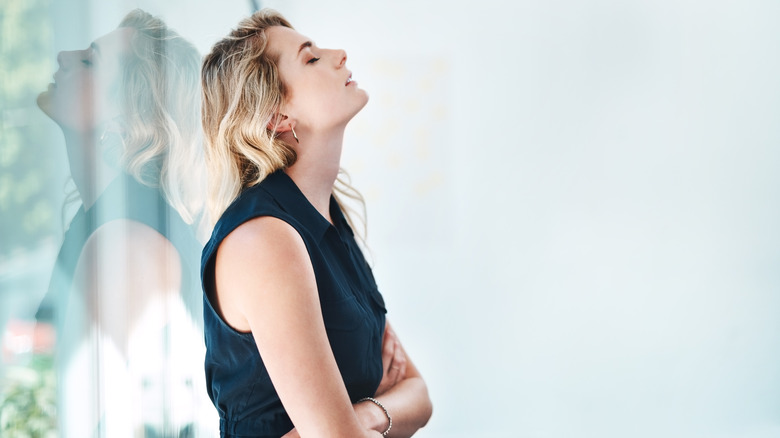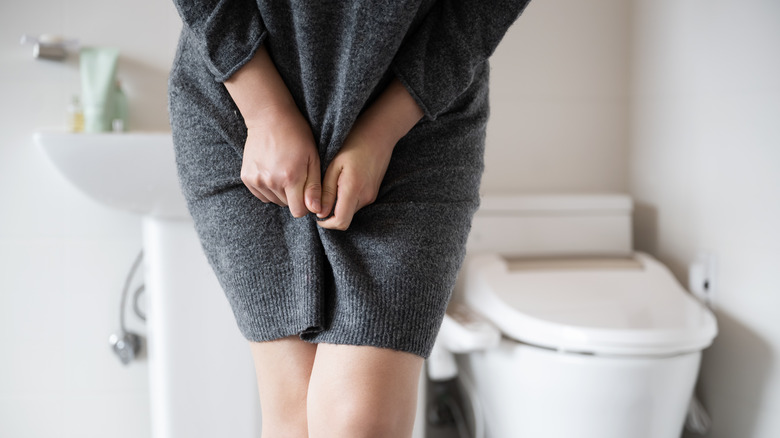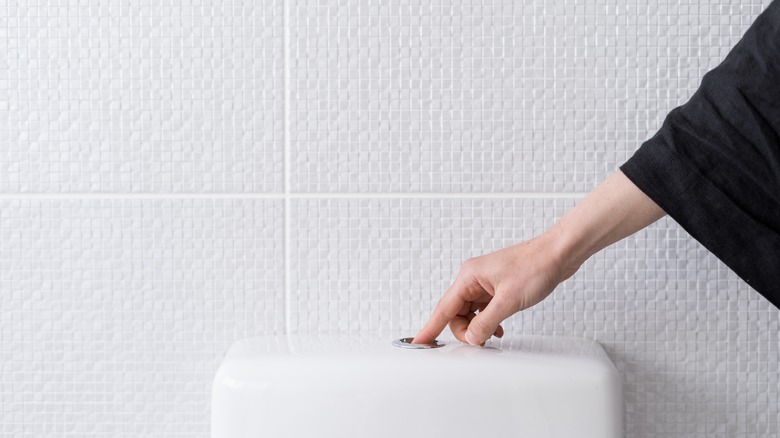You’ve probably been there. You’re nervous about a job interview and find yourself running to the bathroom every ten minutes as you wait in the lobby ahead of meeting with your prospective employer. Having the urge to pee when you’re anxious can be disconcerting, but it’s a natural reaction that is closely linked to your body’s fight-or-flight response, which gets activated when you’re under stress, according to scientists.
Associate professor of urology at the University of California, San Francisco, Dr. Tom Chi explained to Live Science that our bladders are actually capable of holding up to 16 fluid ounces of urine. When they get full, a signal is sent via the spine to the brain, letting our body know when it’s time to pee. Then the bladder contracts and the sphincter muscle relaxes, allowing for normal urination to take place.
When we’re anxious or stressed, however, this usual messaging process gets disrupted. Urologist Rena Malik shared in a YouTube video that the hormones that get released during the fight-or-flight response “override the normal functional hormones that keep our bladders relaxed. So what happens,” she said, “is the sphincter which holds your urine intact, relaxes, and your bladder squeezes, giving you the urge to urinate and some people will even wet their pants.”
But this is not the only explanation for anxiety-induced urination.
Anxiety can cause you to hyper-focus on the need to pee

While in stress-free situations, you may comfortably wait till your bladder is full to relieve yourself. When you’re anxious, however, you could become hyper-focused on the need to pee, even when only a little urine has made its way to this muscular sac.
Ashwini Nadkarni, an associate psychiatrist with Brigham and Women’s Hospital, told HuffPost, “[People will] apply a ‘selective filter’ and focus on the feeling that they’re going to pee, when in fact, objectively, they might not actually pee or pee as much as they think.” Anxiety has a way of lying to you and sending you the false message that you have to pee when you really don’t have to.
In support of her point, a 2024 mouse study published in the American Journal of Physiology-Regulatory, Integrative and Comparative Physiology measured bladder sensitivity in relation to chronic stress. It found that mice that were under a lot of stress had a lower threshold for uncomfortable sensations, one of which was the need to pee. “They [the mice] also felt those sensations more intensely …,” explained Malik via YouTube. “This is known as a phenomenon called stress-induced hyperalgesia,” she said, “which may explain why when we have chronic stress, we actually feel normal sensations like needing to go the bathroom as uncomfortable or bothersome, making us want to go to the bathroom more quickly so that we can relieve ourselves of that uncomfortable sensation.”
Stress-induced bladder contractions could be to blame

Anxious feelings can also mess with the neurotransmitters corticotropin-releasing factor (CRF) and serotonin in our body, according to Malik (via YouTube). Increased stress can cause a higher level of CRF to be released in your body, which can cause bladder contractions. With serotonin (the neurotransmitter responsible for mood regulation), it’s about a reduction in levels. “When you have chronic stress, that actually reduces your serotonin levels, and a reduction of serotonin levels has been found to be associated with more bladder contractions and subsequent urinary urgency and frequency,” explained Malik.
If you have the urge to pee when you’re anxious, there is no need to worry about it. Simply reach out to your healthcare provider for advice on how to navigate the problem. They will likely first rule out any medical issues in your bladder before suggesting some lifestyle changes. Jessy Warner-Cohen, a health psychologist at the Long Island Jewish Medical Center in New Hyde Park, New York, told HuffPost, “If it happens once in a while, for example before a job interview or going on a blind date, the level of disruption can be minimal. If it is happening more frequently, it may be worth thinking through your overall stress levels.”
Practices like meditation, mindfulness, abdominal breathing, quiet time, or even cognitive behavioral therapy (CBT) can help you bring anxious thoughts under control. The goal might be to find things specific to you that will help you reduce anxiety.




